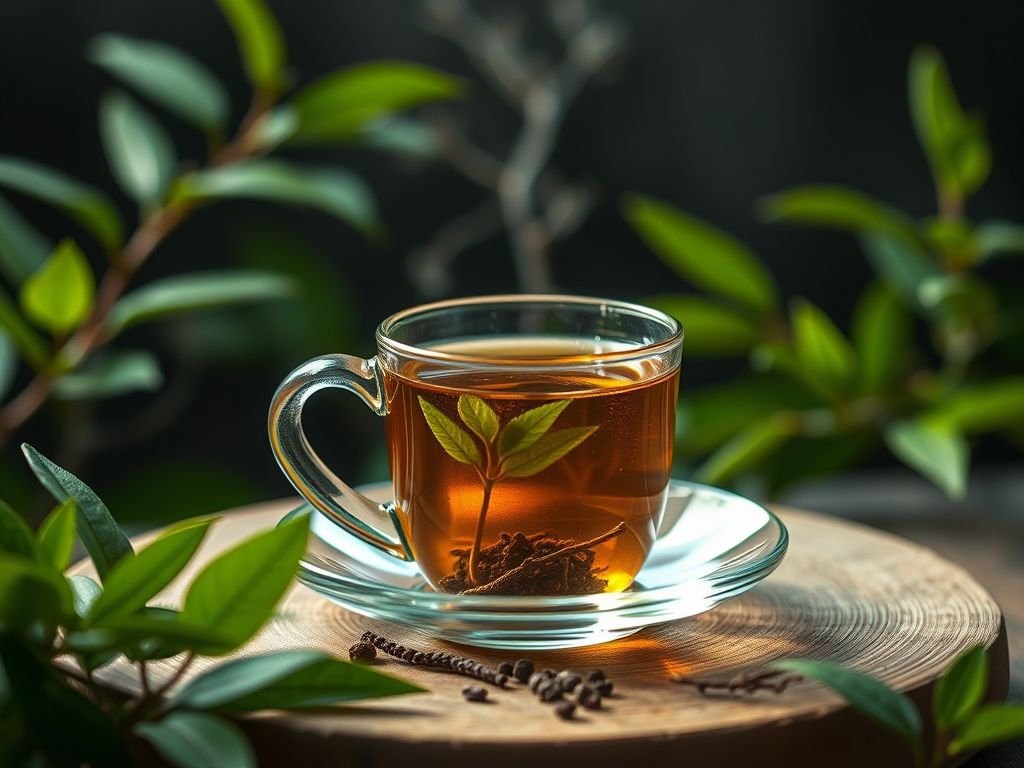Understanding Tea for Inflammation Relief
Tea has long been cherished not only for its refreshing taste but also for its numerous health benefits. Among its many properties, tea for inflammation relief stands out as a natural remedy that many are turning to for soothing various inflammatory conditions.
Inflammation is a natural response of the body to injury or infection, but chronic inflammation can lead to serious health issues, including arthritis, heart disease, and even cancer. This is where tea comes into play, as certain types are rich in antioxidants and anti-inflammatory compounds that can help mitigate these effects.
The Science Behind Inflammation and Tea
Inflammation is often a double-edged sword. While it's essential for healing, when it becomes chronic, it can cause more harm than good. Research suggests that certain compounds found in tea, particularly polyphenols, can inhibit inflammatory pathways in the body.
- Green Tea: Rich in epigallocatechin gallate (EGCG), green tea has been shown to lower levels of inflammatory markers.
- Turmeric Tea: Curcumin, the active ingredient in turmeric, is a powerful anti-inflammatory agent.
- Ginger Tea: Gingerol, found in ginger, can reduce inflammation and improve joint health.
These teas not only help reduce inflammation but also support overall health by boosting the immune system and providing essential nutrients.
Practical Applications of Tea for Inflammation Relief
Incorporating tea into your daily routine can be a straightforward yet effective way to combat inflammation. Here are some practical applications:
- Morning Ritual: Start your day with a cup of green tea to provide a gentle energy boost while reducing inflammatory markers.
- Midday Rejuvenation: A ginger tea break can help soothe inflammation related to digestive issues or muscle soreness.
- Evening Wind Down: Herbal teas, such as chamomile or peppermint, can not only help relax the body but also reduce inflammation after a long day.
By establishing these habits, you can make tea a valuable part of your anti-inflammatory arsenal.
Choosing the Right Tea for Inflammation Relief
With so many options available, it’s important to choose the right tea that aligns with your specific needs. Here are some popular choices and their benefits:
| Tea Type | Main Benefit | How to Prepare |
|---|---|---|
| Green Tea | Reduces inflammation and boosts metabolism | Steep for 2-3 minutes in hot water (175°F) |
| Turmeric Tea | Powerful anti-inflammatory properties | Mix turmeric powder with hot water, add honey for taste |
| Ginger Tea | Alleviates pain and inflammation | Steep fresh ginger slices in boiling water for 10 minutes |
| Chamomile Tea | Promotes relaxation and reduces muscle inflammation | Steep chamomile flowers in hot water for 5 minutes |
Understanding tea in the context of inflammation relief opens the door to exploring other related herbal remedies:
- Willow Bark: Known as nature’s aspirin, it can help with pain and inflammation.
- Boswellia: An herb used in traditional medicine to treat arthritis and reduce inflammation.
- Devil's Claw: Often used for pain relief and to reduce inflammation in conditions like osteoarthritis.
Integrating these herbs with tea can enhance the anti-inflammatory effects and provide a broader spectrum of benefits.
Conclusion: Embracing Tea for Inflammation Relief
Incorporating tea into your lifestyle as a means of inflammation relief is not only beneficial but also enjoyable. By understanding the different types of tea and their unique properties, you can tailor your choices to meet your health needs. Whether you are looking to soothe chronic pain, support your immune system, or simply enjoy a warm beverage, tea offers a natural solution.
As you explore the world of tea, remember that consistency is key. Make it a point to enjoy these brews regularly and observe how they impact your body. Engaging with this practice can lead to a healthier, more balanced life.
If you found this information helpful, consider sharing it with others who may benefit from understanding the role of tea in health and wellness. What tea will you try today to combat inflammation?

